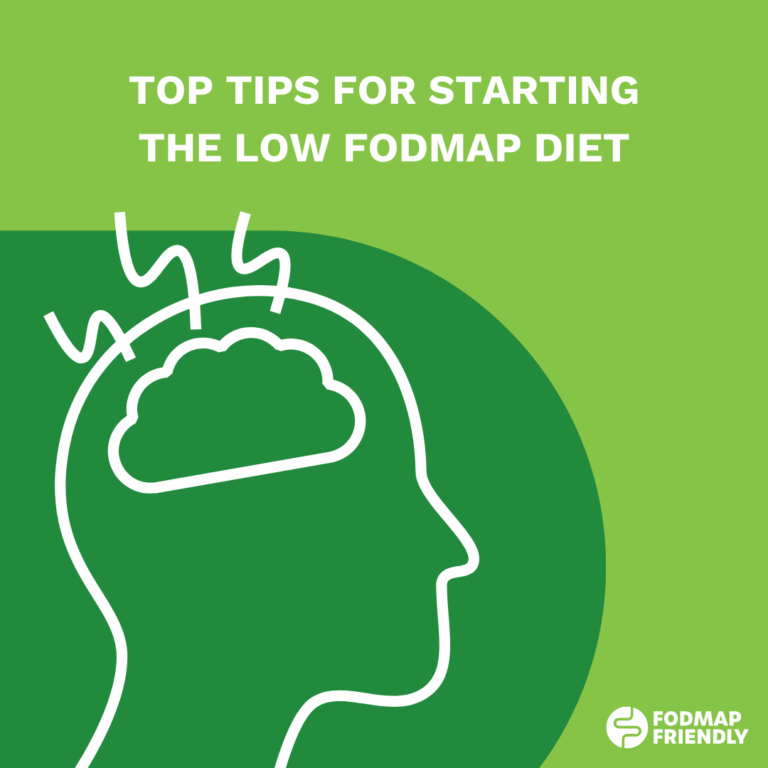If you have IBS, there’s no doubt you’ve done countless hours of digging out information on supplements or remedies to assist with ongoing and uncomfortable symptoms that don’t seem to subside. Through your search, you may have come across the use of digestive enzymes for the management of IBS.
Today we are going to delve a bit deeper and talk about: What they are, if they’re low FODMAP, do they work and any tricks and tips if you’re considering trying digestive enzymes to assist your management of IBS. So buckle up for a ride while we break-down the ins and outs of digestive enzymes!
What are Digestive Enzymes?
First and foremost what are digestive enzymes? They’re a protein in the body that has a prime role in the breakdown of the food into smaller molecules so they can be digested and used as energy or stored in the body. From the beginning of digestion i.e. as soon as you put food in your mouth, your body’s digestive enzymes are at work, as they start the process of digestion within the saliva.
What are the Different Types of Digestive Enzymes Out There?
So now we know what they are and what they do, what different ones are out there? There are multiple types of enzymes, which breakdown different nutrients and most of the over-the-counter digestive enzymes available are based off the three main categories of digestive enzymes created in the body:
– Amylase is responsible for the breakdown of carbohydrates and starches
– Protease is responsible for the breakdown of proteins
– Lipase is responsible for the breakdown of fat
Before we get more into digestive enzymes (and how they may relate to IBS) let’s do a quick breakdown of the abbreviation FODMAP, so we’re all up to speed: Fermentable Oligosaccharides, Disaccharides, Monosaccharides and Polyols.
Some examples of digestive enzymes on the market:
– Lactase: Improves the digestibility and absorption of the disaccharide lactose, through it’s breakdown into glucose and galactose.
– Alpha-galactosidase: This specific enzyme helps the breakdown particular oligosaccharides. It is most effective in the breakdown in galacto-oligosaccharides (GOS) that’s commonly found in: wholegrains and legumes such as beans. This particular digestive enzyme isn’t made in the body. So even in those without IBS, GOS particles can travel to the large intestine essentially undigested; and may cause excess gas or symptoms of bloating.
– Xylose isomerase: Like alpha-galactosidase, this enzyme isn’t made in the body. Consuming this enzyme can assist in breaking down, digestion and absorption of excess fructose.
– Pancrealipase: It is involved in the breakdown of dietary fat into smaller molecules. Whilst fat isn’t a FODMAP, some people may have problems digesting high fatty meals or find high fatty meals trigger symptoms.
What Happens in Your Body When Digestive Enzymes Aren’t Working as Well?
An example of when your body doesn’t produce enough of a certain digestive enzyme is with the enzyme lactase. For individuals with lactose intolerance (or lactase insufficiency), their small intestine doesn’t produce enough lactase and therefore is unable to digest the natural sugar in milk, lactose. As lactose isn’t broken down and digested, it will travel to their large intestine which may lead to unwanted symptoms, such as bloating or excess flatulence. It is estimated that about 75% of individuals worldwide experience this insufficiency to some degree, increasing during adulthood.
Are They Low FODMAP?
Some are and some aren’t, it’s always helpful to read labels in order to avoid hidden FODMAP ingredients, such as sugar alcohols or FODMAP containing sweeteners.
Whilst you can get over-the-counter digestive enzymes, there’s also natural sources of digestive enzymes where eating these can potentially help improve digestion and promote overall good gut health.
Low FODMAP examples include:
– Unripe Bananas
– Pineapple
– Kiwi Fruit
– Ginger
– Miso
– Lewis & Son’s Sauerkraut
– Avocado
The Link Between IBS & Digestive Enzymes
For most individuals, digestive enzymes are secreted into the gut naturally (excluding those not produced by the body), whilst undigested FODMAPs can trigger some symptoms; in the otherwise healthy population these symptoms aren’t causing much discomfort and hence digestive enzymes aren’t needed in this population. However, in those who are affected by IBS, these symptoms can be further exacerbated by a hypersensitive gut and further inability to digest these nutrients. The larger dose and more sensitive gut may lead to more severe symptoms.
Individuals with IBS have a limited ability to be able to digest certain foods, where they may also lack the enzymes to digest one or more FODMAPs. So this is where digestive enzymes might assist in digesting FODMAPs and reducing the potential for undigested carbohydrates to move through the large intestine and possibly reducing symptoms of bloating, constipation diarrhoea and other gut pains.
With IBS and digestive enzyme supplementation, research has mainly been with supplementation of lactase and alpha-galactosidase, where other digestive enzymes just don’t have enough research to determine if they’re effective.
But do they work with IBS?
Lactase supplements can be taken orally prior to consuming lactose containing products. Alternatively, there are a wide range of lactose free alternatives on the market that contain the enzyme lactase. Where as alpha-galactosidase supplementation may assist in the digestion of GOS.
Whilst lactase supplements can improve tolerance with lactose intolerant individuals, it’s not enough to manage IBS symptoms alone. If used, they should be combined with other therapies.
There is some evidence behind alpha-galactosidase supplementation assisted in the management of symptoms in individuals who are particularly sensitive to GOS, where this can allow individuals to consume GOS containing foods.
Any Tips for Using Digestive Enzymes?
o Don’t use them when undergoing the first two phases of a low FODMAP diet, as it can confuse the end results which can hinder your ability to determine your trigger and tolerances. They’re best used to enable people to follow a less restrictive diet long term as they can assist the digestion of intolerable FODMAPS lactose and GOS.
o If you’re considering digestive enzymes, have a two or three week trial to see if it has any effect, if you see no changes after this time it’s likely that they’re not going to provide much benefit. Like all other IBS therapies, what works for one might not work for another.
o Digestive enzymes supplements can interact with certain medications, including: antacids and certain diabetes medications. Make sure you inform your GP your plans to start digestive enzyme therapy.
o Handy for short-term or back up use when travelling or if you don’t have total control on what you are eating, such as going out for dinner.
What About Long-term Use?
There is no evidence to suggest long term use is harmful, however there are some side effects if you have the wrong dosage so it’s important to consult your GP before beginning treatment. These side effects can resemble those that are also common in IBS such as: gas, loose stools, constipation, nausea, bloating and nausea. If you experience severe stomach pain or an allergic reaction consult your GP immediately.
Wrapping it up
Not all cases of IBS are equal and what works for one person might not work for others, digestive enzymes can be useful in situations of intolerance of those particular enzymes i.e. lactase with lactose intolerance. If you see no improvements after a couple of weeks it’s likely that that particular digestive enzyme isn’t for you.
Make sure you are supported and well informed before making the decision to use digestive enzymes as they choosing the right ones to use can be a bit confusing, so either consulting your GP or a Dietitian who specialises in IBS and the FODMAPs for more individualised support.
Written by: Lauren Theodore (Accredited Practising Dietitian)
Reviewed by: Kiarra Martindale (Accredited Practising Dietitian)














